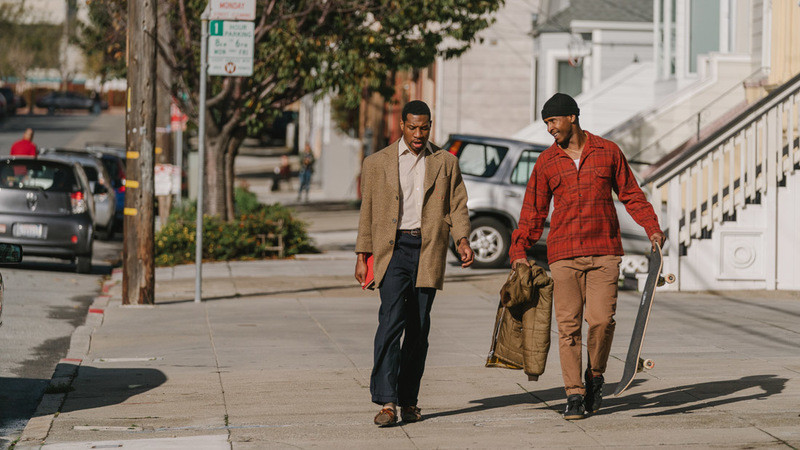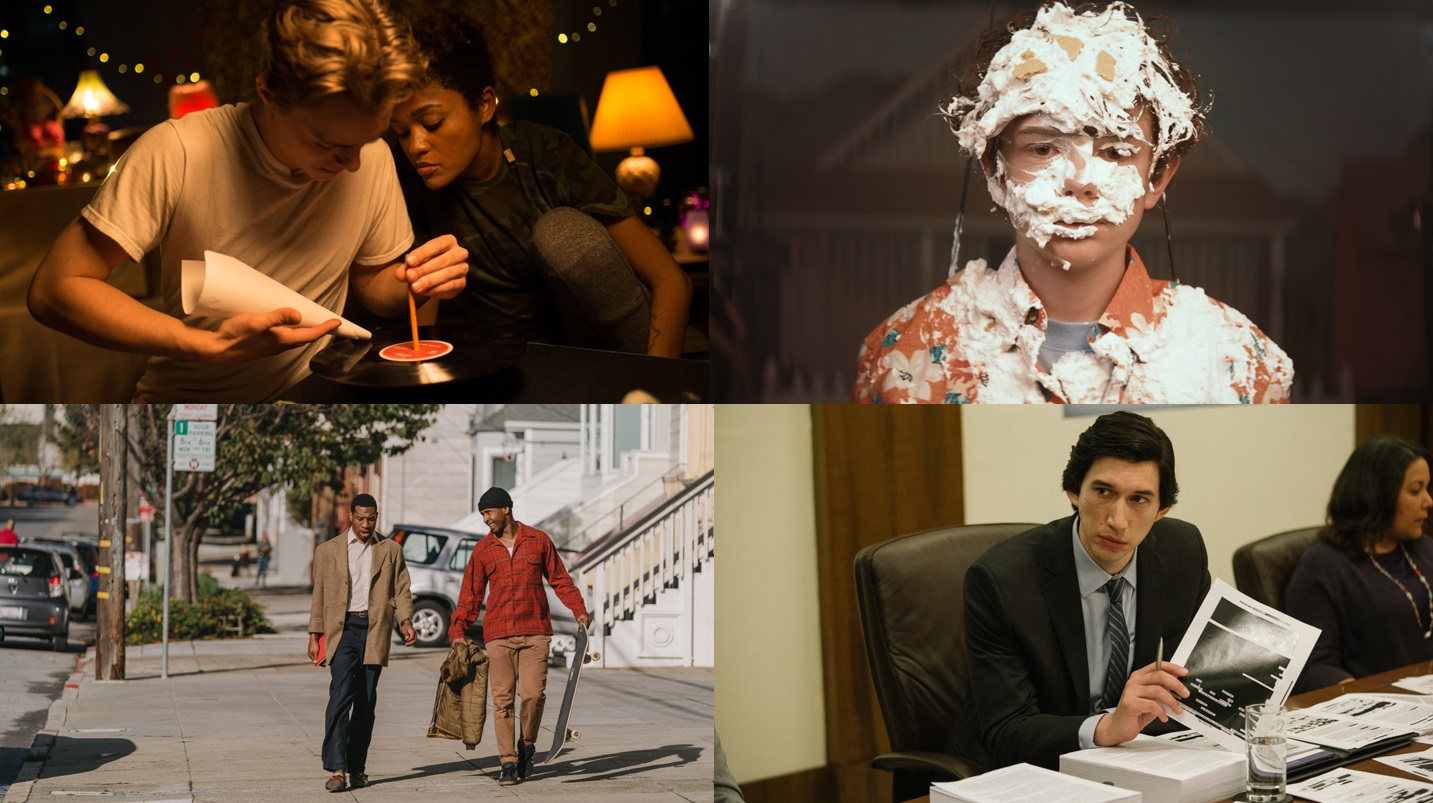You know how much you loved Elsie Fisher in “Eighth Grade,” Lakeith Stanfield in “Sorry to Bother You,” Toni Collette in “Hereditary,” and Thomasin Harcourt McKenzie in “Leave No Trace”? All of those performances and even more great 2018 acting turns premiered at Sundance in January of 2018. So who gave the performances of Sundance 2019 that you’ll be talking about all year long? These are 12 you’ll want to keep on your cinematic radar.
Awkwafina in “The Farewell”
On the heels of her breakout role in “Crazy Rich Asians,” Awkwafina shows off a new dramatic side in Lulu Wang’s deeply personal movie, “The Farewell.” Here, she plays Billi, the Chinese-American granddaughter of a woman who’s been given a fatal diagnosis but whose doctors and relatives won’t tell her. As the most westernized member of this family, Awkwafina channels the complicated tensions between the two cultures, the immigrant fear of never being able to go home again and of what it means to love someone so much that you’ll go along with the charade of pretending they’re not dying. It’s an emotional yet restrained performance from a comedienne who broke out by playing the most outrageous character in a large ensemble cast. (MC)

Adam Driver in “The Report”
The role of Daniel Jones in Scott Z. Burns’ story of the torture report that revealed the lengths the U.S. government went to under the guise of stopping terrorism could have been a thankless, blank slate of a part. So much of “The Report” is about what Jones discovers that the man himself could have been lost in the paperwork he created. But Driver never lets this happen. He maintains a confident, believable character, never stealing focus from what really matters but also not getting lost in the storytelling. It’s the kind of un-flashy performance that won’t get the credit it deserves for anchoring an entire movie. In other words, it’s what Adam Driver is increasingly good at doing. (BT)
Kelvin Harrison Jr. in “Luce”
The players in Julius Onah’s stylish drama “Luce” are pitched amid various dualities and uncertainties. The title character is no exception—Luce is a star student, a model son to his adoptive parents and a source of inspiration to his community. Then again, he might also have disturbing leanings elsewhere. For anyone who’s seen Kelvin Harrison Jr. in the unnerving “It Comes at Night” (also a film on trust, strengthened by the perspective of the audience), his spot on performance here as a teenager that carries both guilt and innocence with equal persuasiveness won’t come as a surprise. It’s a performance that’s chilling and disarming all at once, while Harrison Jr. swiftly holds his ground against veterans like Octavia Spencer, Tim Roth and Naomi Watts with both nuance and meticulous delivery. (TL)
Zora Howard in “Premature”
In Rashaad Ernesto Green’s romantic drama, “Premature,” Zora Howard plays Ayanna, a teenager who’s coming-of-age and still trying to figure out things in her life. During the summer, she falls for a music producer, Isaiah (Joshua Boone), in a swoon-worthy, whirlwind romance — the kind you think about years after it ends. But few things survive long when you’re seventeen, and Howard smoothly works her way through Ayanna’s deeply felt emotions. From recreating that warm glow in her cheeks during the couple’s honeymoon period to the stiff body language in reaction to their splitting relationship, so much of Ayanna’s story comes from Howard’s expressions and body language. Howard’s sensitive performance feels reminiscent of Kerry Washington’s role in “Our Song” and the independent spirit of Ariyan A. Johnson’s character in “Just Another Girl on the I.R.T.” It’s not a showy performance, but one that sticks with you because of its subtlety and familiarity. (MC)

Noah Jupe in “Honey Boy”
Alma Har’el’s gutsy “Honey Boy” seems like a wall-to-wall therapy session: for its writer Shia LaBeouf (who tells his own condemned life story) and for anyone who’s been raised in the hands of abusive parents. In it, the young actor Noah Jupe—among this year’s sharpest breakthroughs of Sundance—gets caught in the crossfire of it all with a rare opportunity. Playing the young, somewhat fictionalized Shia, he picks up the phone in one scene (it’s mom on the other end) and relays his parents’ fuming words back to each other with startling anger, precision and defeat, just like a grown-up. In another scene, he steps back down to being a child, and begs his father to become a better parent. Jupe steals this movie, displaying range and virtuoso well beyond his young years. (TL)
Riley Keough in “The Lodge”
Veronika Franz and Severin Fiala’s horror film was one of the most divisive flicks at this year’s Sundance, but even the film’s detractors agreed that Riley Keough does great work in it. It’s an incredibly difficult part in that Grace needs to remain something of a question mark. Not only is she the potentially evil stepmother that our two child protagonists don’t want in their lives, but she may be crazy too. Playing a character with a questionable grip on sanity is an invitation for most performers to chew the scenery but Keough grounds Grace in a way that makes her far more interesting and the final act of the film far more terrifying. It’s just another great turn from an actress who isn’t afraid to choose challenging, unpopular roles, and seems to impress more every time she does. (BT)
Kiki Layne in “Native Son”
The fascinating Ashton Sanders got a great deal of press for his leading turn in the opening night film, but the performance that lingers in my mind more is that of Kiki Layne, who announced her future-star status in “If Beale Street Could Talk” and really cements that here in just a few scenes. Bess could have easily become a two-dimensional archetype, the put-upon girlfriend who exists more as a sounding board for the leading man than a real person. But Layne imbues every choice she makes with realism, adding to the poignancy of the final act. Much as she did with her underrated work in “Beale,” she never makes the wrong choice here. I can’t wait to see what she does next. (BT)

Jonathan Majors in “The Last Black Man in San Francisco”
Joe Talbot’s “The Last Man in San Francisco” mixes symphonic filmmaking with the quiet dreams of its characters, especially for its two leads, Jimmie (Jimmie Fails) and Montgomery (Jonathan Majors). Majors fashions an impeccable earnestness out of a sidekick who could have been lost to quirkiness, and paints a vivid image of a man who clings to his red notebooks and especially the ideas inside, while monologuing to himself on a pier, as if figuring out what means most. Though Fails is the fulcrum of the story, it receives some of its most beautiful moments from Majors’ performance, like when he earnestly yells at a mirror while attempting to try on the aggressiveness of other black men—it’s a funny and tragic note on the story’s sensitive portrayal of black masculinity. Majors’ masterstroke, however, might be a performance sequence in the third act that contains all of the film’s themes, like Linus’ monologue in “A Charlie Brown Christmas Special,” while displaying all of his energy and charisma. Majors’ performance is acting as storytelling in the best ways, and one of many flourishes in Talbot’s unforgettable film. (NA)
Alia Shawkat in “Animals”
Shawkat’s brought many a playful character to the screens large and small, but few roles have allowed her to play such a classy raconteur as she does in Sophie Hyde’s “Animals” Like a poem-filled, sequence-wearing Withnail, Tyler (Shawkat) is the impish answer to Laura (Holliday Grainger), a flailing writer who’s the straight man I to this Withnail. The two best friends are comrades in drugs and parties, but just as they’re approaching their 30s and Laura begins dating a pianist, their close friendship suffers a rift. Although the movie follows Laura more closely, Tyler also experiences her own awakening, giving Shawkat room not just to play a wildcard character but also an emotionally vulnerable person who wants her close friend back in her apartment to share a drink. (MC)

Lauren ‘Lolo’ Spencer in “Give Me Liberty”
There are a lot of faces and voices that are crammed into “Give Me Liberty,” Kirll Mikhanovsky’s claustrophobic, heartwarming story about a group of people who are united on a van. But one of the most memorable performances belongs to Lauren ‘Lolo’ Spencer, who enters into the story as one of the clients that Chris Galust’s medical transport van driver has to pick up. But she proves to be an excellent, scene-stealing straight-woman against the chaos of the other riders on the van (Vic’s Russian elders, it’s a long story). You get a full sense of her life before and after the times Vic pick her up, as it shows her charisma across expressions of comedy or drama. (NA)
Honor Swinton-Byrne in “The Souvenir”
With her soft, childlike facial features and expressive eyes, Honor Swinton-Byrne (Tilda’s daughter) embodies “The Souvenir’s” Julie—an ambitious film student about to lose her innocence in the hands of a toxic relationship—with a rare kind of exactness. Throughout, she moves with the grace and reluctance of someone acutely aware of both her misfortunes and privileges. As Julie falls deeper into the overwhelming rabbit hole of a young, life-defining love, Swinton-Byrne dials up her helplessness to heartbreaking effect, turning Julie into a real-life character you will both want to shake up and non-judgmentally protect. Having given perhaps the most mournful performance of Sundance, Swinton-Byrne is sure to walk in her mother’s shoes and put her unique stamp on every film she will be in. (Good news: a sequel for “The Souvenir” is already in pre-production.) (TL)
Geraldine Viswanathan in “Hala”
Geraldine Viswanathan is well on her way to being a star, and her lead role in Minhal Baig’s “Hala” should accelerate the process. Playing a Muslim teenager of first-generation immigrant parents in Chicago, this role is a marvelous display of how Viswanathan can present the process of contemplation, an excellent fit for a character who can internal as tries to navigate the world. She has a striking precision with emotion, offering a lot to be read between the lines in a way that registers as raw and compelling whether it’s in thinking about how she feels about her first major sexual encounter, or observing her parents’ marriage slowly start to fall apart. It lets the majority of “Hala” play out with more subtlety, honoring the quiet ways in which maturity finds and changes us. (NA)











